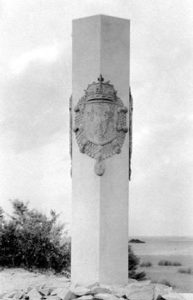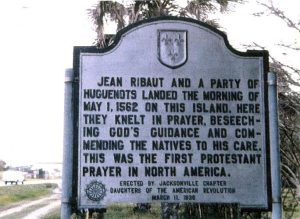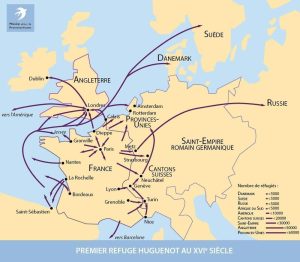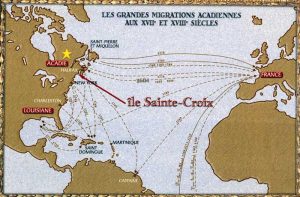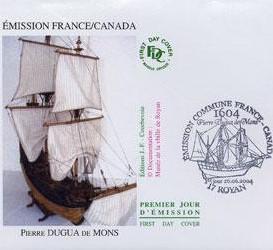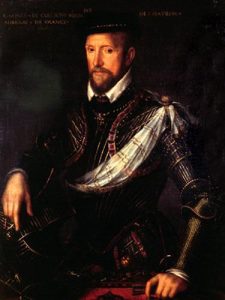France and its ream of a "French Antarctic"
Many protestants were involved in the initial discovery of the New World ; during the XVIth century they could be found in Brazil, Florida and South Carolina, although they were never sure of staying there for long and indeed, after a short period of time, the French colonies ceased to exist.
François Ist entrusted a protestant nobleman with a vast project for establishing a colony. He was called Jean-François de la Rocque, lord of Roberval and he went to Canada in 1541. But the expedition failed due to a number of difficulties, the worst being scurvy and the hostility of the native population.
Another expedition to Latin America set off in July 1555. Nicolas Durand de Villegagnon, vice-admiral of Brittany, was in charge of two fully armed vessels which were given to him by the king for an expedition to Brazil. There were several hundred men aboard, who later established a new French colony at Fort Coligny in the bay of Rio. In 1557 fourteen Calvinists joined them, including two pastors, Pierre Richer and Guillaume Chartier. Villegagnon had contacted them from Brazil, asking them to come, so they set sail from Honfleur. But due to a theological argument about the significance of the Last Supper, Villegagnon sent the protestants away from Ile Coligny and in 1558 they had to travel back to France. Jean de Lery (1534-1613) was one of the men aboard – later he became a pastor and also wrote an extraordinary account : Histoire d’un voyage fait en la terre du Brésil, autrement dite Amérique, published in Geneva in 1578.
From that time onwards no more French colonies were established in South America – in 1560 they all became Portuguese.
Huguenot Florida (1562-1565)
One of the first French protestants to pioneer the settling of colonies in New France was Admiral de Coligny – he wanted to establish a French empire where Huguenots could settle.
In 1555 Charles IX gave him the authorisation to found a colony in Florida.
In January 1562 Jean de Ribault from Dieppe set sail from Le Havre for Florida ; he was in charge of two vessels with 150 huguenots on board. He founded Charlesfort but this colony did not last for long, as the Spanish destroyed it two years later.
In 1564 Rene de Laudonniere, a protestant from Poitou, led another expedition with three vessels from Le Havre to what is now known as South Carolina and founded Fort Caroline. He was later joined by Jean de Ribault with 600 men. However, soon after his arrival, in 1565, Pedro Menendez de Aviles, a Spaniard, attacked the Fort. All the French soldiers were killed, including Ribault, Laudonniere was lucky enough to escape and sailed back to France.
One could say that these two expeditions had failed miserably ; nevertheless, trade remained active with the New World, due to the fishermen of La Rochelle.
When Henri IV abjured the protestant faith in 1593 the Huguenots no longer had any hope of establishing a Refuge in the New World.

